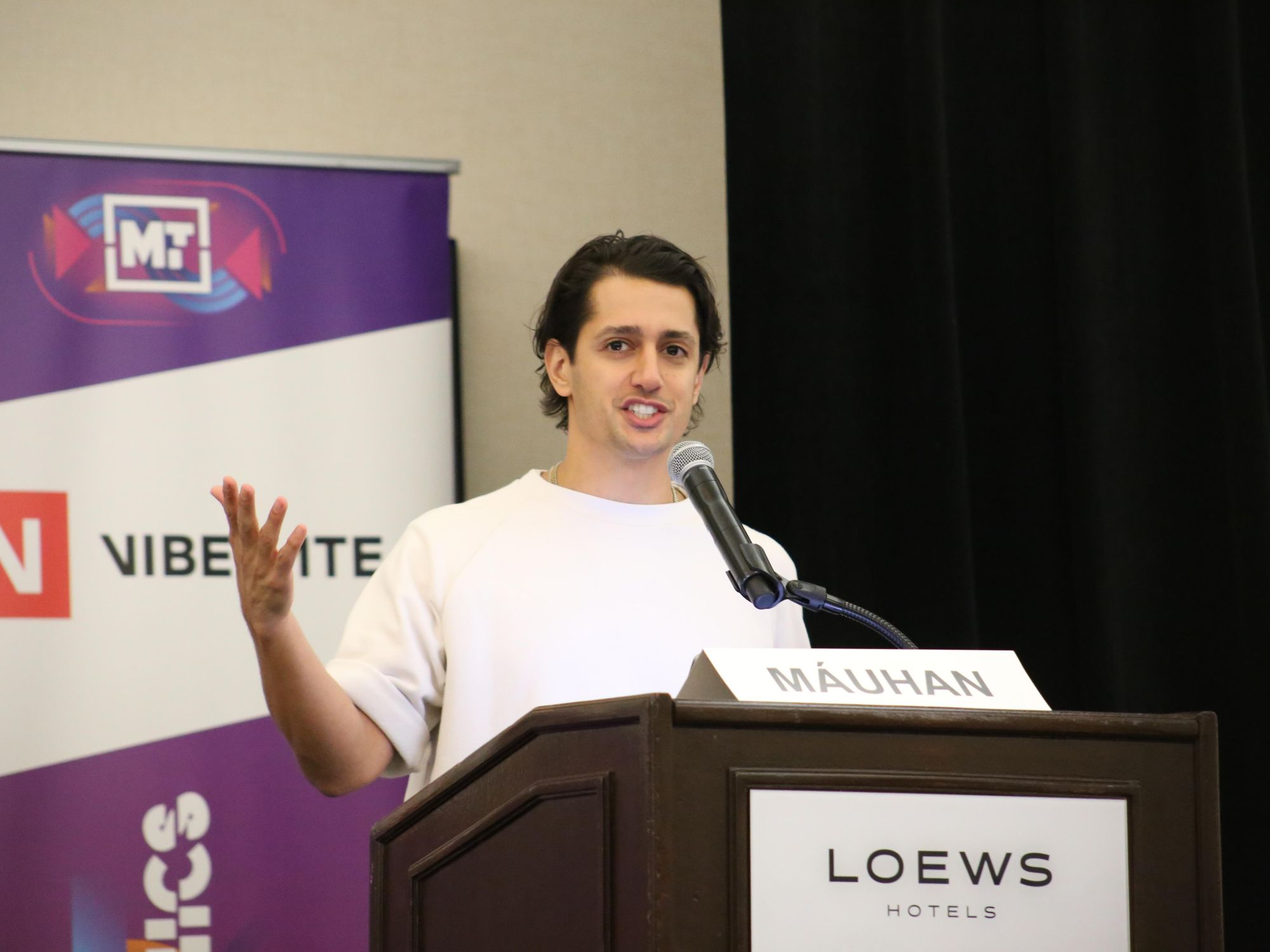Gaming Is Taking Over Music As Gen Z's Cultural Hub
Decerry Donato is a reporter at dot.LA. Prior to that, she was an editorial fellow at the company. Decerry received her bachelor's degree in literary journalism from the University of California, Irvine. She continues to write stories to inform the community about issues or events that take place in the L.A. area. On the weekends, she can be found hiking in the Angeles National forest or sifting through racks at your local thrift store.

Dmitri Vietze launched the first Music Tectonics in 2019 to explore how web3, NFTs and the metaverse are shifting the music landscape.
“I realized there was nothing like this that was focused on music tech or music innovation on the West Coast or in the L.A. area,” Vietze told dot.LA.
On Wednesday, the 4th annual Music Tectonics conference kicked off at the Loews hotel in Santa Monica. Guests included TikTok’s Head of Music Corey Sheridan, YouTube’s Head of Music Sanjay Amin, SoundCloud’s Global Vice President of Marketing Manny Toro and Sony Ventures’ Managing Director Joseph Tou.
Here are some of the most important takeaways:
The music industry can learn a thing or two from the gaming industry.
“Instead of designing the music for gaming, we should design it for internet culture and internet communities,” said head of Spotify innovation Máuhan Zonoozy. “Technology is the Z access for music, it drives growth and innovation. Gaming is simply another content format that was designed a little bit more strategically to take advantage of that.”
NFTs are bringing artists and fans closer together.
According to CrossBorderWorks founder and CEO Vickie Nauman, fans will pay for NFTs or tokens that are associated with their favorite artists because they want access and they want to be part of the club.
“They [fans] want to have those collectibles and when I think about our industry when we moved from album sales, and mp3 downloads into streaming models, we kind of eliminated the top of the pyramid of really high value, scarce goods, except for live music,” Nauman continued. “And I think that web3 has the capability of recreating those high value scarce goods that music fans love. And so I think that we can create a new class of monetization in web3 that we just don't have right now.”
Music is needed for video content to thrive.
“We published a study a few years ago that showed that 85% of videos on YouTube contain at least 10 seconds of music,” said Pex COO Amadea Choplin. Her point being that, video on its own, isn’t very engaging. She added that, “music is absolutely fundamental to making a content pop, to make and people relate to it, want to watch it, engage with it, comment on it, and share it.”
It’s in the best interest of platforms to handle distribution so creators can focus on creating content.
“The handling of all of the logistics that we're placing on creators and songwriters, frankly, is just not in their best interest,” said Choplin. “So we're really focused on making that a very seamless system and expanding the network of platforms that pay creators and songwriters because it shouldn't be just one or two platforms that are paying them, it should be every single platform out there.”
Ecommerce will be the next big thing for video and music content.
“Candidly speaking, in the West, societal behavior is not quite there yet where people are used to consuming short-form videos and then being inspired to make a purchase,” said TikTok head of music Corey Sheridan. “When we look to the East and look at behaviors, particularly in China, it is a massive multi-billion-dollar industry. So that is going to be the next phase.”
The metaverse is in its early stages and the barrier to entry must be accessible in order for people to trust its utility.
According to Seven20 founder and CEO Dean Wilson, 20 years ago, everyone looked at you like you had five heads if you said we link credit cards on the computer when you buy stuff online. “But now we trust it and now we have our phones and when we walk up to a machine and tap it, we get annoyed if we can't do that anymore,” Wilson continued. “As an industry that’s where we have to go."An earlier version listed Dmitri's last name incorrectly.
Decerry Donato is a reporter at dot.LA. Prior to that, she was an editorial fellow at the company. Decerry received her bachelor's degree in literary journalism from the University of California, Irvine. She continues to write stories to inform the community about issues or events that take place in the L.A. area. On the weekends, she can be found hiking in the Angeles National forest or sifting through racks at your local thrift store.



 Image Source: Revel
Image Source: Revel
